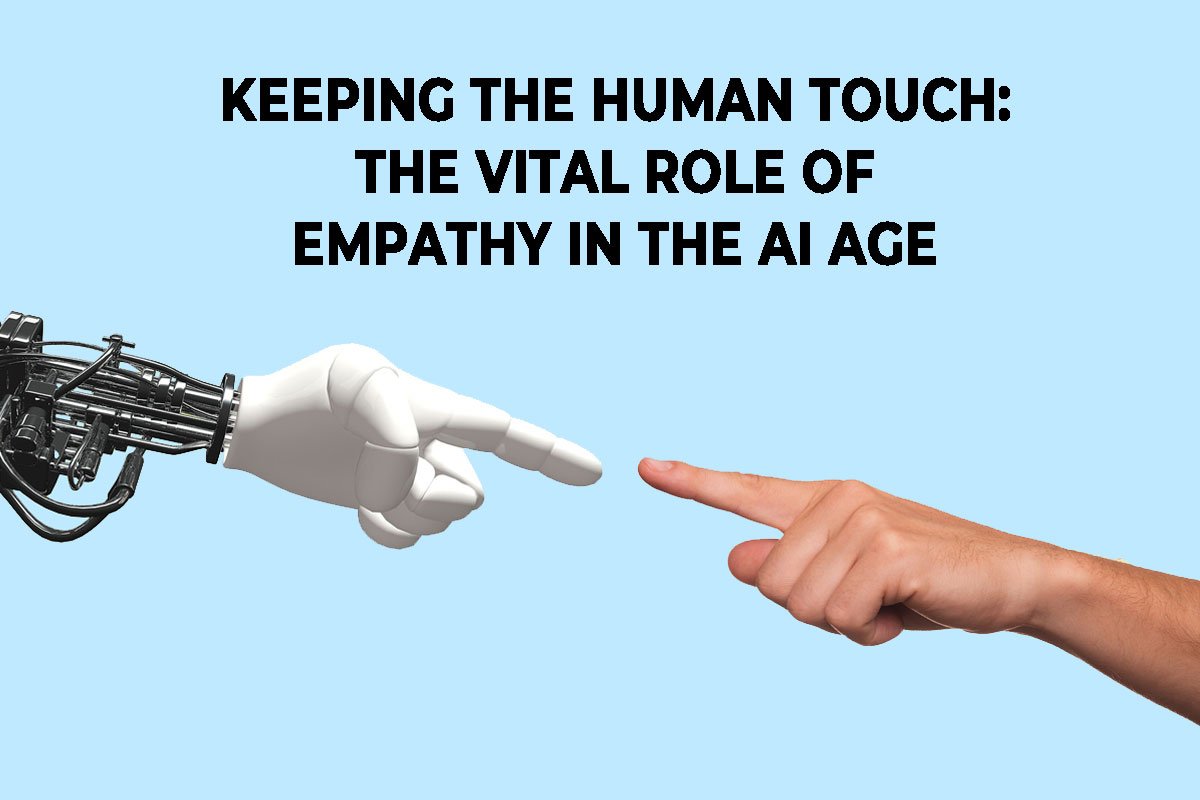AI is revolutionizing by impacting our personal and professional lives. As ChatGpt and other AI tools emerge to make our work and lives easier, we are getting more dependent on them. But we have to understand that no matter how much we depend on AI it can never replace the power of human empathy. Empathy is the ability to understand and share the feelings of others, it is an important component for building trust, and relationships and making a more compassionate world. In this article, we will explore the importance of human empathy in this AI age and how we can cultivate it to create a more equitable society.
Why Empathy is Essential in the AI Age
One of the biggest risks we are and would face in this AI age is becoming too reliant on this technology to solve our problems. While AI has many benefits, such as improved efficiency and accuracy, it cannot replace the emotional intelligence and human connection that comes from empathy. Empathy is essential in the AI age because it allows us to:
1 Build trust
People are more likely to trust those who they believe understand and care about them. In business, for example, companies that prioritize empathy are more likely to build strong, long-lasting relationships with their customers and employees.
2 Avoid bias
AI systems are only as unbiased as the data they are trained on. Without empathy, it’s easy to overlook the biases and assumptions that are baked into our data sets, perpetuating inequalities and perpetuating existing power dynamics.
3 Create more ethical AI
Empathy can help us create more ethical AI systems by encouraging us to consider the impact of our technology on marginalized communities and design our systems in ways that prioritize fairness, transparency, and accountability.
4 Foster innovation
Empathy is essential for innovation because it allows us to see problems from multiple perspectives and to create solutions that meet the needs of a diverse range of people.
5 Enhance user experience
Empathy can help us create more user-friendly AI systems by anticipating and understanding the needs and preferences of users. This can lead to more intuitive interfaces, more personalized recommendations, and more engaging experiences overall.
6 Improve decision-making
AI systems are often used to make important decisions that affect people’s lives, such as hiring decisions, loan approvals, and medical diagnoses. By incorporating empathy into the design and implementation of these systems, we can create more accurate, fair, and ethical decision-making processes.
7 Increase social responsibility
As AI systems become more powerful and ubiquitous, it’s important to recognize the social responsibility that comes with their use. By prioritizing empathy, we can create AI systems that align with our values, respect human dignity, and promote the common good.
How to Cultivate Empathy in the AI Age
Cultivating empathy is not always easy, especially in a world that often prioritizes efficiency and productivity over human connection. However, there are several ways we can foster empathy in the AI age, including:
1 Listen actively
One of the best ways to cultivate empathy is to listen actively to others. This means paying attention to their words, tone of voice, and body language and trying to understand their perspective without judgment or interruption.
2 Practice perspective-taking
Perspective-taking is the ability to put yourself in someone else’s shoes and see the world from their perspective. This can be done by asking questions, reflecting on your own biases, and seeking out diverse viewpoints.
3 Build diverse teams
Empathy thrives in diverse environments where people with different backgrounds and experiences can come together to share their perspectives and ideas. Building diverse teams can help us create more empathetic AI systems and address the biases that are inherent in our data sets.
4 Prioritize human connection
In the rush to adopt new technologies, it’s easy to forget the importance of human connection. Prioritizing human connection means creating spaces for open dialogue, building relationships based on trust and respect, and valuing emotional intelligence as much as technical expertise.
5 Build resilience
The AI age is marked by rapid change and uncertainty. Cultivating empathy can help us build resilience by fostering a sense of community, creating a shared sense of purpose, and providing emotional support during difficult times.
6 Encourage creativity
Empathy is a key component of creativity, as it allows us to see problems in new ways and generate innovative solutions. By cultivating empathy in ourselves and our teams, we can tap into our collective creativity and generate new ideas that have the potential to transform our world.
Conclusion
Empathy is more important than ever in the AI age. As we continue to integrate technology into every aspect of our lives, we must remember that empathy is the key to building trust, avoiding bias, creating ethical AI, and fostering innovation. By cultivating empathy in ourselves and our organizations, we can create a more just and equitable society that values human connection as much as technical innovation.


